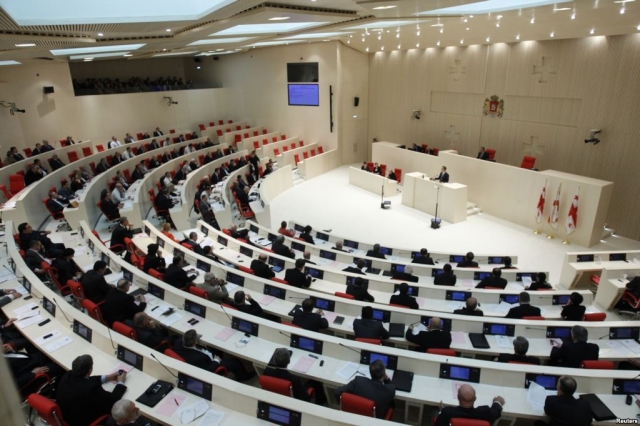Georgia’s Parliament Overrides President’s Veto on Surveillance Bill
TBILISI – The MPs of Georgian Parliament have overridden President Giorgi Margvelashvili’s veto on the surveillance draft bill adopted by parliament on March 1st.
The legislative package included provisions for the creation of a legal entity of public law (LEPL) the Operative-Technical Agency of Georgia, which will be responsible for covert surveillance. The agency will be under the supervision of the State Security Service (SSS). However, the agency will be accountable to the prime minister and will submit a generalized report of its activities to the PM annually.
The responsibilities of the agency will include hidden surveillance of phone communication; retrieving information from computer systems; control of post office transfers; secret audio and video surveillance; and photographic surveillance.
The new bill on covert investigative actions became necessary after the Constitutional Court of Georgia ruled on April 14, 2016 that the existing model of surveillance, with the Interior Ministry and Personal Data Protection Inspector as key players, needed to be changed.
The court stated that the existing legislation, which allowed the police to have direct and unrestricted access to telecom operators’ networks to monitor communications, was unconstitutional and set a deadline of March 31, 2017 to implement the court’s decision and replace the existing surveillance law with new one.
The president added his remarks to the bill, and he sent it back to parliament on March 21st.
He had two main remarks: The bill does not guarantee the independence of the new surveillance agency, and there are "unjustified and unpredictable costs” that the bill imposes on communications companies.
The majority party, Georgian Dream(GD), which has 116 seats in the parliament, needed at 76 votes out of total 150 MPs to override the bill.
The president’s bill was voted on first. 22 MPs were in favor, and 86 were against.
Afterwards, parliament voted for a bill that had not been approved by the president. 93 MPs voted in favor of the bill 21 were against.
Head of the President’s Administration, Giorgi Abashishvili, called this “disappointing.”
“If the parliament had supported the president’s remarks, the surveillance agency would have been more independent,” he stressed.
Parliamentary opposition parties believe the majority’s draft bill does not respond to the Constitutional Commission verdict, that the agency must be independent. They also think that the bill gives too much power to the SSS. Non-Governmental Organizations also share this position on the issue.
The bill was once again sent to the president after the veto was overridden. If the President does not sign it again, the Speaker of the Parliament will have the right to sign it.
By Thea Morrison












